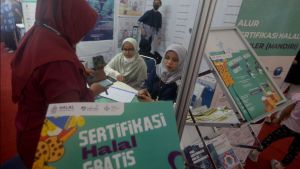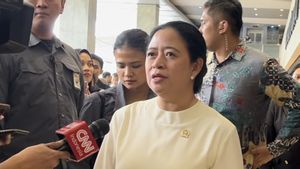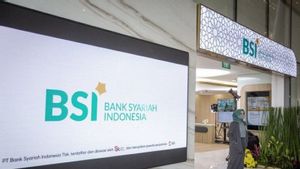JAKARTA - The government is said to continue to make efforts to optimize the digital economy in order to support the source of state revenue, especially in terms of taxation.
Assistant Deputy for Digital Economy at the Coordinating Ministry for the Economy Rizal Edwin Manantang said that one of the objects as well as strategic subjects was the e-commerce sector.
"We ensure that the direction of tax policy has considered its impact on the development of the national e-commerce industry, including for MSMEs that take advantage of the market place in expanding their business," he said in a written statement on Friday, September 23.
According to Rizal, the implementation of Law Number 7 of 2021 concerning Harmonization of Tax Regulations (HPP) has expanded the national tax base by also targeting the digital sector.
"From the derivative rules, namely PMK Number 60 of 2022, mandate the organizers (e-commerce) to collect 11 percent of VAT for foreign products they sell in Indonesia. This tax must be collected by companies that have a transaction value of more than Rp600 million a year or Rp50 million a month," he said.
On the same occasion, the General Chairperson of idEA Bima Laga explained that he hoped that the regulation would not be implemented suddenly considering that it would take time to educate MSMEs on the e-commerce platform.
"We must provide education to traders, as well as the HPP Law, how will we be able to provide sufficient time in its implementation," he said.
Similarly, tax researcher from Gadjah Mada University (UGM) Adrianto Dwi Nugroho conveyed that the appointment of certain parties (e-commerce) as tax collectors would weaken the self-assessment system held.
This is because the obligation to report and deposit taxes by a taxpayer or PKP, for example, business actors who earn business profits in domestic Electronic Systems Trading Organizers (PPMSE) are transferred to other parties.
"In our opinion, this marketplace is temporarily considered to have no capacity. Because it is only an intermediary in a transaction, he does not know whether the seller's status has met the requirements or not," he said.
Adrianto is worried about disinformation because the marketplace does not know the status of taxpayers or street vendors from their sellers. Then, they were asked to cut and deposit into the state treasury. In fact, there is some information that is not owned, one of which is related to the volume of transactions.
"This can affect the intermedia capacity, including from the vendor whether it has been PKP or not to meet these requirements. So in terms of marketplace capacity, there are problems that must be resolved before this can be applied," he asserted.
The English, Chinese, Japanese, Arabic, and French versions are automatically generated by the AI. So there may still be inaccuracies in translating, please always see Indonesian as our main language. (system supported by DigitalSiber.id)













